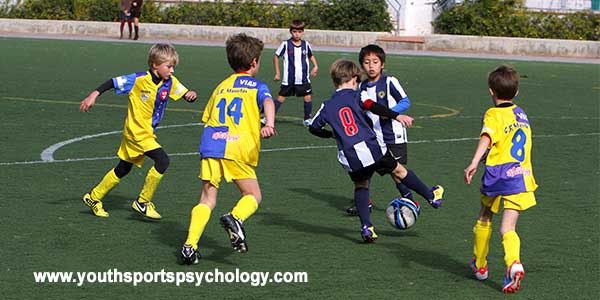
Youth Sports Interview with Author Amy Bass
In the book, “One Goal: A Coach, a Team and the Game That Brought a Divided Town Together,” author Amy Bass relates how refugees from Somalia brought their passion for soccer to the town of Lewiston, Maine and changed Lewiston in remarkable ways.
When the refugees started arriving, the town was fraught with racial tension and at one point, the mayor asked Somalis to stop coming.
In an interview with Ultimate Sports Parent Radio, Bass, a professor of sport studies at Manhattanville College, discussed how the town’s transformation took place, instilling pride in the community, creating stronger ties among residents and yielding a state championship.
All that happened thanks in large part to coach Mike McGraw’s willingness to listen to his players, she said.
“It’s the story of Lewiston, Maine and the massive change this community has gone through in the last 15 years or so with the influx of 7,000 African refugees over 10 years. I use the lens of the high school soccer team, where a lot of Somali youth landed and how the community figured out paths for working together,” she said.
Before the Somalis arrived, soccer was viewed as a sport kids played to prepare for basketball or hockey.
Value of Listening
After the refugees arrived and many joined the soccer team and created recreational teams, McGraw prioritized rules that would create the best team possible, and this served as a model for the community, she says.
“One of the things kids would say about coach: He doesn’t care where we’re from, just as long as we pass the ball,” she said.
One of the coach’s strengths was listening. In fact, McGraw listened to his players more than any other head coach Bass had met.
His willingness to listen to players and community members happened in the context of the Somali community creating its own resources in the town, including recreational soccer leagues and organizations for youth that provided homework help for soccer players.
“Really enabling those voices to have a level of prominence and power is really a lesson to take away. Partnering and allowing other voices to come into the conversation was a rare move for a coach and it has paid off tremendously,” Bass says.
Not only did McGraw listen; he showed empathy for the players. For example, a player might be late to practice because he had to stay home and translate a conversation between his parent and a doctor. In this instance, a coach might decide that the player can’t start a game; but the player would still be allowed to play.
The benefits of listening and showing empathy helped not just the soccer players, but the whole town, creating a model for communicating.
Listen to the Entire Interview with Amy Bass
Related Articles on Kids’ Mental Game:
- The Power of Empathy in Youth Sports
- Create a Sports Culture that Includes All Kids
- Helping Young Athletes ‘Wing it’ During Games
*Subscribe to The Sports Psychology Podcast on iTunes
*Subscribe to The Sports Psychology Podcast on Spotify
Improve Your Mental Game From Anywhere In The World

We’re certain that, as a parent, you want to help your child develop confidence and discipline in sports and life. And as a sports parent, you’d love for your children to reach their potential in sports. But encouraging your child to strive for greatness without pressuring them can be a challenge.
You can get expert mental coaching with us from anywhere. Meet with us via Zoom, Skype, FaceTime or phone call. With today’s video technology, we are able to connect with athletes and coaches all over the globe.
Call Us Today to Schedule Your Free 15-Minute Session.
Find Out How Your Athlete Can Benefit From One-on-One Mental Coaching!
